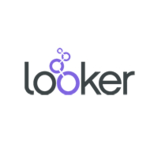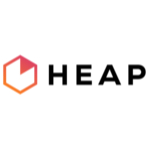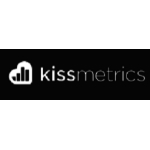TechnologyCounter provides genuine, unbiased real user reviews to help buyers make informed decisions. We may earn a referral fee when you purchase through our links, at no extra cost to you.
List of 15 Best Ecommerce Analytics Software
Showing 1 - 15 of 22 productsGoogle Analytics is a web analytics tool provided by Google that allows businesses and website owners to track and analyze their websites performance. With its user-friendly interface and customizable reports, Google Analytics provides valuable insig...Read Google Analytics Reviews
Mixpanel is the all-in-one analytics solution that helps businesses of all sizes make data-driven decisions. With its intuitive and user-friendly interface, Mixpanel provides real-time insights into user behavior, allowing companies to understand and...Read Mixpanel Reviews
Hotjar is a tool that allows website owners to understand their users behavior and improve their overall experience. With its wide range of features and user-friendly interface, Hotjar is a must-have for any business looking to optimize their website...Read Hotjar Reviews
Looker is a software designed to transform the way you analyze and visualize data. With its intuitive interface and powerful features, Looker is a tool for gaining valuable insights and making data-driven decisions. Get ready to elevate your analytic...Read Looker Reviews
Heap is a data analytics and visualization software designed to revolutionize your business operations. With its powerful capabilities and user-friendly interface, Heap allows you to effortlessly track and analyze critical data points for enhanced de...Read Heap Reviews
Yotpo is a e-commerce solution for businesses looking to increase sales, build customer loyalty, and enhance their online reputation. With user-generated content, marketing tools, and analytics, Yotpo empowers companies to create a seamless and engag...Read Yotpo Reviews
Databox is a business analytics platform that empowers companies to make informed decisions based on real-time data. With its intuitive interface and customizable dashboards, Databox helps businesses of all sizes track key metrics, identify trends, a...Read Databox Reviews
RetailScape the innovative software designed to revolutionize the retail industry. This powerful tool offers retailers unprecedented insights into consumer behavior, market trends, and competition. With RetailScape, businesses can make data-driven de...Read RetailScape Reviews
Glassbox is a software designed to provide businesses with a holistic view of their customers digital journey. It offers a unique combination of session replay, real-time analytics, and machine learning capabilities, allowing companies to understand...Read Glassbox Reviews
Webgility is a software that simplifies and streamlines e-commerce operations for businesses of all sizes. With its user-friendly interface and innovative features, Webgility helps businesses manage their online sales channels, inventory, and financi...Read Webgility Reviews
Metrilo is a customer analytics tool that helps businesses unlock valuable insights and make data-driven decisions. With its powerful features interface, Metrilo makes it easy to track and understand customer behavior, optimize marketing strategies,...Read Metrilo Reviews
Conjura is the all-in-one solution for businesses looking to streamline their data management and analytics processes. With its advanced platform and user-friendly interface, Conjura simplifies the complex task of data collection, extraction, and org...Read Conjura Reviews
Kissmetrics is a analytics platform designed to help businesses gain actionable insights and make informed decisions. With its robust features and user-friendly interface, Kissmetrics offers detailed tracking and reporting capabilities to help busine...Read Kissmetrics Reviews
OWOX BI is the powerful business intelligence solution that revolutionizes the way companies gather, process, and analyze their data. With its advanced capabilities, OWOX BI provides businesses with unparalleled insights and enables data-driven decis...Read OWOX BI Reviews
Contlo is a solution for all your business needs. With Contlo, managing your tasks, projects, and teams has never been easier. Say goodbye to complex and time-consuming processes, and hello to a streamlined is a way of running your business. Let Cont...Read Contlo Reviews
- What Is Ecommerce Analytics Tools?
- Top Reasons Why Businesses Need Ecommerce Analytics Tools?
- What Are the Top Key Features of Ecommerce Analytics Tools?
- What Are the Top Benefits of Ecommerce Analytics Tools?
- What Are the Steps to Choose the Right Ecommerce Analytics Tools?
- What Are the Types of Ecommerce Analytics Tools for Different Industries?
- What Are the Technology Trends for Best Ecommerce Analytics Tools?
- What Are the Deployment Options for Ecommerce Analytics Tools?
What Is Ecommerce Analytics Tools?
Ecommerce analytics tools encompass a collection of instruments utilized for the purpose of quantifying and scrutinizing the operational effectiveness of an ecommerce enterprise. These technologies quantify several dimensions, including website traffic, page impressions, stock levels, consumer actions, and additional metrics.
Best ecommerce analytics tools are utilized to discern patterns, detect nascent prospects, and enhance client satisfaction. These technologies possess the capability to monitor consumer purchases, study purchasing trends, comprehend the effectiveness of marketing initiatives, and assess alterations in customer participation across a span of time.
The objective of utilizing ecommerce analytics solutions is to acquire valuable knowledge regarding client behavior, website efficacy, and market trends in order to enhance and expand the business. The utilization of these techniques facilitates a deeper comprehension of clients and the marketplace for ecommerce organizations.
By leveraging these insights, businesses can strategically construct focused marketing efforts aimed at attracting a larger consumer base. Additionally, they may optimize their service models to enhance efficiency and make necessary adjustments to price and product positioning in order to maximize revenue.
Top ecommerce analytics tools facilitate the monitoring and analysis of several dimensions inherent in an ecommerce enterprise. These tools include comprehensive graphical representations, reports, and visual aids, aiding in the comprehension and interpretation of the collected data.
This facilitates expedited decision-making for firms and enables them to promptly seize opportunities arising from emerging trends, so fostering the development of a prosperous online enterprise.
Top Reasons Why Businesses Need Ecommerce Analytics Tools?
1. Track user behavior and measure website performance metrics: Ecommerce analytics solutions enable enterprises to monitor user activity and assess crucial metrics pertaining to website performance, including page views, duration of page visits, interactions per session, and other relevant indicators.
2. Identify customer datasets: Ecommerce analytics technologies facilitate the identification of various customer information, including customer profiles, customer journeys, and consumer behavior, enabling organizations to gain valuable insights.
3. Monitor sales performance: Ecommerce analytics software enables enterprises to effectively track and evaluate sales performance, encompassing the identification of top-selling products, assessment of individual product sales figures, and determination of the most effective promotional strategies.
4. Optimize marketing campaigns: Ecommerce analytics solutions facilitate the optimization of marketing efforts for firms. This entails the examination of the channels that exhibit the highest efficacy in generating traffic and facilitating conversions.
5. Track website conversions: Ecommerce data analytics software facilitates the monitoring of website conversions, encompassing metrics such as the proportion of visitors who successfully finalize a transaction, among other relevant indicators.
6. Analyze user experience: Ecommerce analytics solutions facilitate the examination of user experience for businesses by detecting deficiencies in website design and user flow.
7. Measure key metrics: Ecommerce analytics solutions enable firms to quantify essential data, like customer lifetime value (LTV) and customer acquisition cost (CAC).
8. Implement A/B testing: Ecommerce analytics solutions facilitate the implementation of A/B testing methodologies, enabling firms to discern the optimal variations of their website design for enhanced effectiveness.
9. Analyze customer segmentation: Ecommerce analytics solutions facilitate the examination of consumer segmentation and the identification of preferences among target audiences for enterprises.
10. Retarget customers: Ecommerce analytics solutions facilitate the process of retargeting clients and establishing ongoing communication through customised notifications.
11. Track revenue trends: Ecommerce analytics solutions enable organizations to monitor revenue trends, including customer order volume, client acquisition patterns, and average customer purchase value.
12. Automate marketing: Ecommerce analytics solutions facilitate the automation of marketing efforts for firms, enabling the delivery of targeted messages and offers to clients at the most opportune moments.
13. Monitor customer feedback: E-commerce analytics technologies enable enterprises to effectively monitor client feedback and utilize the acquired insights to enhance their offerings and services.
14. Analyze customer segment performance: Ecommerce analytics software facilitates the examination of various client segments' performance, enabling firms to make informed adjustments to their strategy.
15. Integrate with other tools: Ecommerce analytics technologies possess the capability to be seamlessly integrated with additional data sources, such as customer relationship management (CRM) systems or customer intelligence tools.
This integration allows for the comprehensive analysis of consumer behavior, ultimately leading to enhanced customer engagement strategies.
What Are the Top Key Features of Ecommerce Analytics Tools?
1. Reporting and Dashboard: The best ecommerce analytics software facilitates the generation of comprehensive reports and visually appealing dashboards, which enable businesses to gain in-depth insights into their performance. Several ecommerce analytics platforms, such as Mixpanel, Adobe Analytics, and Google Analytics, provide this particular feature.
2. User Behavior Analysis: Ecommerce analytics technologies facilitate a comprehensive comprehension of user behavior, encompassing aspects such as customer engagement with a website or application and the decision-making process involved in making purchases.
These insights can be employed to enhance the overall user experience, augment conversions, and optimize the functionality of websites or applications.
3. Targeted Segmentation: Ecommerce data analytics software facilitates firms in effectively reaching out to specific customers by tailoring personalized offers and messages. This particular strategy becomes particularly advantageous in the context of campaigns, product launches, or any other events that necessitate a focused approach to marketing.
4. Performance Tracking: Ecommerce analytics solutions offer a comprehensive perspective on many performance measures pertaining to a firm, encompassing aspects such as product sales, marketing campaigns, income generation, and website visitors.
5. Post-Purchase Pathway Analysis: Top ecommerce analytics tools are utilized to track and analyze the user's journey subsequent to the completion of a purchase. This aids organizations in comprehending the consumer journey and detecting any ignored aspects.
6. Mobile Analytics: The best ecommerce analytics tools offer comprehensive insights into the performance of mobile applications. The aforementioned data has the potential to enhance the user experience and increase user engagement within the application.
7. Website Optimization: Ecommerce analytics solutions enable organizations to monitor and discern areas of improvement in order to ensure optimal performance of a website or application.
8. A/B Testing: Ecommerce analytics solutions enable firms to conduct A/B testing, wherein two versions of a webpage are compared to determine the optimal version that resonates with their intended audience. This procedure aids enterprises in enhancing the performance of their website or application by focusing on maximizing conversions.
What Are the Top Benefits of Ecommerce Analytics Tools?
1. Increased insight into customer behavior: Ecommerce analytics technologies offer significant value in understanding consumer behavior through the collection and analysis of data throughout the customer journey.
This enables enterprises to gain a deeper comprehension of client requirements and preferences in relation to purchase decisions, enhance user satisfaction, and formulate more focused marketing tactics.
2. Improved decision-making: Through the systematic examination of data from various channels and campaigns, organizations can enhance their decision-making processes and engage in more effective future planning.
3. Maximize ROI: Through the use of analytics technologies, enterprises have the capability to discern the most effective channels and campaigns, thereby enhancing their endeavors to achieve the maximum possible return on investment.
4. Improved customer service: By comprehending consumer behavior and preferences, enterprises can enhance their customer service, resulting in heightened levels of satisfaction, loyalty, and income.
5. Simplify marketing: The utilization of analytics technologies enables organizations to streamline their marketing operations by effectively targeting the appropriate customers in terms of timing and location.
6. Improved customer segmentation: The best analytics tools for ecommerce has the capability to offer a comprehensive examination of client segmentation, enabling firms to effectively direct their marketing efforts towards the appropriate customer segments through tailored communications.
7. Personalized service and product recommendations: Through the collection of data pertaining to consumer behavior and preferences, organizations have the capability to offer tailored service and product recommendations to clients, hence enhancing their level of engagement.
8. Enhanced customer loyalty: By comprehending the requirements of consumers and conducting an analysis of customer data, enterprises have the ability to generate customized experiences that result in the development of customer loyalty and an increase in the frequency of repeat purchases.
What Are the Steps to Choose the Right Ecommerce Analytics Tools?
1. Evaluate Your Business Needs: Begin by assessing the analytics requirements of your organization. Consider the specific insights that you aim to acquire from your data and identify the areas within your business that require the greatest assistance. This will aid in the process of refining the selection of analytics tools that are most suited for your firm.
2. Research ecommerce Analytics Tools: Allocate sufficient time to conduct thorough research on the many analytics tools that are now accessible in order to ascertain the most suitable option for your firm. It is vital to acquire a comprehensive comprehension of the many characteristics and capabilities exhibited by each tool.
3. Compare Pricing: After the process of narrowing down the available possibilities, the next step involves conducting a comparative analysis of the pricing structures associated with the tools in order to choose the most suitable choice within the constraints of your budget. Please take into account any supplementary expenses, such as fees associated with implementation, subscription, or training.
4. Check For Compatibility: It is imperative to verify the compatibility of the ecommerce analytics software with the existing ecommerce platform. It is crucial to guarantee that the tool possesses the capability to furnish the necessary insights.
5. Test Drive the Tool: After the process of narrowing down the available possibilities, it becomes necessary to do a thorough evaluation of the tool in question prior to reaching a final conclusion. Conduct a comprehensive assessment to ascertain the suitability of the tool for your firm.
6. Ask for Recommendations: One should not hesitate to seek guidance or counsel. Engage in communication with ecommerce enterprises who have achieved favorable outcomes with analytics solutions, in order to ascertain their recommendations regarding such tools.
7. Make Your Decision: After the completion of data collection, the subsequent step involves the process of decision-making. Select the tool that will yield the greatest value and appropriate insights.
What Are the Types of Ecommerce Analytics Tools for Different Industries?
The selection of top ecommerce analytics tools may exhibit significant variation among sectors due to factors such as firm size, industry type, and intended analytics objectives. In the context of extensive industries like retail, there are more comprehensive analytics systems, such as IBM Cognos Analytics, Oracle Retail Analytics, and SAP HANA.
Smaller enterprises within various industries may find it advantageous to adopt more economical and customized solutions, such as Google Analytics, Mixpanel, and KISSmetrics. In the realm of content-based enterprises, there exist specific software solutions tailored to meet their needs, such as Adobe Analytics and Webtrends.
What Are the Technology Trends for Best Ecommerce Analytics Tools?
The technology trends for best ecommerce analytics tools are constantly changing. Here are some of the top trends that are currently trending:
1. Advanced analytics: The integration of advanced analytics capabilities is becoming imperative for ecommerce enterprises. This encompasses the integration of artificial intelligence (AI) and machine learning (ML) functionalities, which facilitate the generation of automated insights and facilitate more profound analysis.
2. Automated segmentation: Ecommerce enterprises are leveraging automated segmentation skills to categorize clients into pertinent groups. This enables firms to customize their marketing strategies and enhance client experiences with greater accuracy and precision.
3. Enhanced user experience: By harnessing consumer input and utilizing data-driven insights, organizations have the capability to develop customized user experiences that have the potential to enhance client loyalty.
4. Real-time monitoring: Through the utilization of real-time analytics solutions, organizations have gained the ability to closely observe and analyze client behavior to a greater extent than in previous times. This enhanced capability enables prompt answers and adjustments in their strategy.
5. Cloud-based solutions: The utilization of cloud-based data analytics solutions is experiencing a surge in popularity, enabling organizations to conveniently access their analytics data from any location and at any time. This enables enterprises to enhance their decision-making process by utilizing real-time information.
What Are the Deployment Options for Ecommerce Analytics Tools?
The deployment choices for ecommerce analytics software may differ based on the specific technology being utilized.
In a general sense, the available choices often encompass multi-tenant cloud, self-hosted cloud, and hybrid solutions.
1. The utilization of a SaaS-style solution is commonly observed in the multi-tenant cloud option. This entails the utilization of a third-party data center for the storage of analytics data, while the analytics tool is hosted and maintained on the servers of the cloud provider.
2. The self-hosted cloud option entails the practice of an enterprise hosting the analytics tool on their own servers. This technique offers enhanced system control and deployment capabilities as the organization retains full authority over the procedures and configurations involved.
Moreover, it is generally characterized by a higher cost.
3. Ultimately, the hybrid approach entails an entity deploying the analytics tool on its own infrastructure while simultaneously leveraging a cloud-based solution. This approach achieves a harmonious equilibrium among factors such as cost, control, and scalability.















